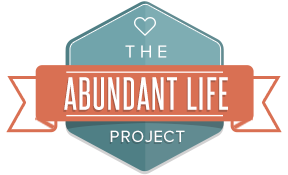[Warning: this post is not for anyone who gets squeamish about the talk of needles, blood, or veins. I'm looking at you, Doc.]
Last Monday, I received a call from a local hospital's blood bank. They needed my blood. Gulp. I've given blood before, which is how they knew my blood type and to call me, and even though it doesn't hurt or bother me, I still make myself nervous about giving it. I wish I could have gone right that moment to give - then I wouldn't have had time to think about it. Instead, an appointment was made for Wednesday. Sigh...two days to think about it.
So, why did they need my blood? Because I'm A negative. A quick wikipedia search tells me that's rare. In fact, out of 307 million people in the United States, only 6.3% are A negative. O positive is the most common blood type. While few people may share my blood type, A negative blood can be given to four different blood types. The only type that beats that is O negative, which is a match for all blood types. On the downside, an A negative patient can only receive A negative or O negative blood. Let's hope I never need a blood transfusion.
For this blood bank, I usually donate platelets. I've done it a handful of times and the experience really isn't bad. It takes a couple of hours (my little veins take 2.5 hours for one bag, others can do two bags in less than 2 hours) and you get to lay under a nice heated blanket and watch a movie. Afterwards there's always a drink and a snack. Another perk for me is that I can do it during the workday without having to use vacation time. Wednesday afternoon nap while on the clock? Don't mind if I do.
So my appointment time arrived and I gathered my things and drove over to the blood bank.

Don't think this is the type of place you can just barge into and steal a bunch of blood. Nope, similar to a jewelry store, you have to ring the doorbell and show your face before they'll open the door for you to come in. But once inside, everyone is super nice and glad you're there!
First stop is the interview room.

This is where they ask you about a billion questions (really it's like 34) to make sure you're a good candidate to give blood. It's very possible to never make it past the interview room. Trust me, I've been rejected before. One of the first things done is a quick finger prick to make sure your iron is high enough. It has to reach a 12.5 on the scale (no idea what kind of measurement this is) and I've been low on several occasions. This particular time I was a 13.4. Oh yea!
After the finger prick, blood pressure, and heart rate check, come the questions. Some samples?
--Do you weigh at least 110 pounds?
--Have you been to the dentist recently? (Must wait 3 days after an appointment - bacteria from your teeth can get into your blood stream if your gums are wounded.)
--Have you traveled out of the country? (Different countries have different restrictions.)
--What medicines do you take? (An aspirin within the last 48 hours will get you rejected.)
--Have you had any shots recently?
--Do you have any open sores? (I got kicked out from a mouth ulcer once.)
--Have you gotten a tattoo in the last year?
There are also questions about diseases and illnesses that I've never heard of, questions about using drugs and needles, and questions about having relations with prostitutes. Fun stuff.
If you pass all the questions, your left in the room by yourself with a piece of paper to circle Yes or No about whether or not you think your blood is good enough to be used on a patient. After circling your answer, you fold your piece of paper, drop it in a box, and head out to the donor room.
The chairs are similar to dentist chairs, except bigger and comfier. Each chair has its own tv and headphones and you can have an electric blanket draped over you (I always do) and pillows. While I was in the interview room this past time, they told me they had met their quota of platelets for the day and asked if I would be willing to give whole blood.
A little info about the differences between giving platelets and whole blood:
--Whole blood is a much faster process. When you give platelets, your blood comes out, spins in a machine to separate out the platelets, and then the blood is put back in. The process repeats over and over - draw blood, put in - instead of drawing it all out and then putting it all back in.
--When you give whole blood, you obviously don't get your blood back, which means its possible to feel puny - for lack of a better word - after giving.
--A bag of whole blood is red; a bag of platelets is yellow.
I had only given whole blood one other time, and since I didn't eat a good meal afterwards like I was supposed to, I did end up getting really light-headed. But I told the nurse I'd be willing to do whatever they needed so whole blood it was. (They were originally going to try to get both platelets AND whole blood out of me before they realized they'd met their total for the day. Wowza.)
My nurse helped me get situated and I got to work squeezing my stress ball. I tried to give my veins a quick pep talk; I really didn't want to have to go through multiple needle pokes.

My pep talk must've worked because we were successful on the first try. I was wearing a cream turtleneck that day and my nurse was kind enough to drape a cloth over it in case things got messy. It's a good thing she did because my vein was so excited about its donation that it splattered a little when the needle went in.
Small splatter proof on the blue towel. The white cloth is covering up the rest. The blood's flowing now!

I filled up my bag in six minutes flat. Impressive, right? Once filled, the bag goes to the third floor so testing may be done. It takes about three days before the blood is ready for a patient to receive it. I gave permission for my blood to be used in research, and I think they were also going to see if it is a match for a particular patient. If it is, I'll be called back to give platelets.
After everything was removed from my arm, my vein was still flowing so I had to apply pressure for a few minutes. Finally, I got bandaged up!

Since I gave whole blood, I made sure to eat all of my snack (peanut butter cookies) and drink all of my drink (orange juice). I didn't want to stand up too soon.
For giving a donation I received a free t-shirt. Who doesn't love freebies?
Two last things to help explain the title of this post:
--Blood banks hurt for donations during the holidays. Donors get caught up in the rush and hooplah of the season and forget that hospital operations don't take time off. Some regular donors may also be traveling and unable to make their appointments.
--Statistically, more people are killed during the Thanksgiving and Christmas holidays than any other time of the year. Your blood donation could help save a life.
Now I know that giving blood isn't for everyone, but if you are one of the few that's able to donate, maybe you can find it in your heart (and veins) to give now.
(If you live near me and would like to visit the donor center I go to, I'll be glad to help you make an appointment. I'll even go with you and hold your hand!)


















